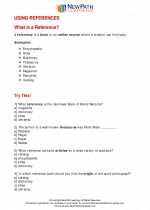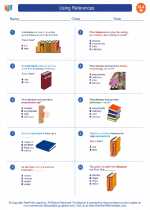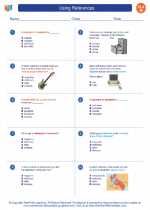Using References
When writing academic papers or conducting research, it's important to use references to support your arguments and provide credibility to your work. References can come in the form of books, articles, websites, and other sources that have been consulted and cited in your writing. Here are some key points to keep in mind when using references:
1. Understanding Different Types of References
References can be primary sources (original works such as poems, diaries, or official documents), secondary sources (interpretations or analyses of primary sources), or tertiary sources (compilations of information from primary and secondary sources, such as encyclopedias or textbooks).
2. Citing References Properly
When using references, it's essential to cite them properly using a specific citation style such as APA, MLA, or Chicago. This includes providing in-text citations and creating a list of references at the end of your work.
3. Evaluating the Credibility of References
Not all references are created equal. It's crucial to critically evaluate the credibility and reliability of the sources you use. Consider the author's expertise, the publication date, the publication venue, and whether the information is supported by other reputable sources.
4. Avoiding Plagiarism
Plagiarism, the act of using someone else's work or ideas without proper acknowledgment, is a serious offense in academic writing. Always give credit to the original authors by properly citing their work.
5. Using References to Strengthen Your Argument
References can provide evidence, support, and additional perspectives to strengthen your argument. They can also demonstrate the depth of your research and knowledge on a particular topic.
Study Guide
As you study the topic of using references, consider the following questions:
- What are the different types of references, and how do they differ from one another?
- Why is it important to cite references properly, and what are the consequences of improper citation?
- How can you evaluate the credibility of a reference source?
- What are the ethical considerations when using references, and how can you avoid plagiarism?
- How can references be used to strengthen and support your arguments in academic writing?
Be sure to practice identifying different types of references, creating proper citations, and critically evaluating the credibility of various sources. Understanding how to effectively use references will enhance the quality and integrity of your academic work.
Happy studying!
[Using References] Related Worksheets and Study Guides:
.◂English Language Arts Worksheets and Study Guides Eighth Grade. Using References

 Worksheet/Answer key
Worksheet/Answer key
 Worksheet/Answer key
Worksheet/Answer key
 Worksheet/Answer key
Worksheet/Answer key
